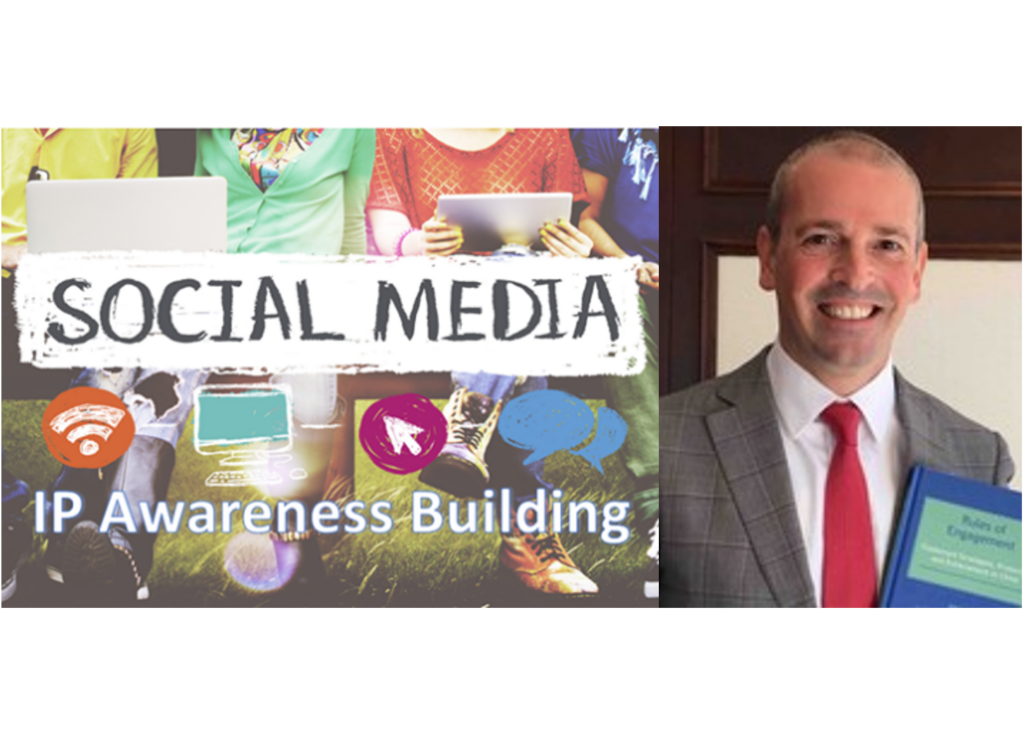Online Marketing for IP Experts – Interview with Paolo Beconcini
To create awareness about the online marketing best practice for IP experts we are regularly interviewing IP experts, who are successfully using LinkedIn and other digital channels to position themselves and gain new clients via those channels. Additionally, we are showing their best practice in the online marketing Newsletter of the 🎯 IP Management Pulse and its Online Marketing Guides. Here you can find the last issues in the archive and also subscribe to never miss any of our online marketing resources. Summary of the key answers by Paolo Beconcini:
- Digital channels enable IP experts to reach new and bigger target groups
- Clients are preferring IP experts, who show their special experience online
- Consistent online communication is key for successful online marketing
Background Question 1:
We are currently seeing a continuously accelerating digital transformation in the IP system. Especially in dealing with the stakeholders of the IP system as well as in the relationship and communication between attorneys and clients. As well as networking and professional exchange between IP experts, for example via social networks such as LinkedIn.
IP business academy: How do you perceive these changes?
Paolo Beconcini: Digitalization of communications between IP experts is changing our profession. For most part in a very good way. Digital platforms like LinkedIn for example, enable any IP professional to contribute more poignantly to the larger IP discussions compared to the more traditional academic channels. Newsletter and blogs hosted by firms and associations allow the spreading of knowledge and awareness to their readers better than any annual seminar and or in-person events. Every IP professional has now an accessible platform through which contributing his/her knowledge, increase his professional standing, connect with people he otherwise would never be able to physically reach, and possibly develop business for him/herself. There are caveats. The shear amount of continuously fluctuating information in the digital IP platforms can become easily overwhelming. Professionals that are naturally reluctant to venture in business development and networking, may find the task to be very daunting. Also, not all information, communications and networking are worth being pursued. An IP professional must commensurate the return of investment to the time he/she is willing and able to invest in developing. Therefore, experience and planning are required before an IP professional is able to really profit from the digitalization transformation.
Background Question 2:
Expert marketing refers to the targeted presentation and positioning of experts and their expertise. This includes a strong personal brand presence of the expert in the online area, in particular the creation and distribution of high-quality and useful content, and targeted lead generation. This also includes online reputation management, i.e. monitoring and positively influencing your own expert brand.
How important is your expert positioning for you and your business?
If we are discussing this issue, it is because we all agree that a high level of professionality and skills is nowadays a must to every client looking for an IP professional. Nobody will attract new work by saying: “I have a lot of experience in patent litigation”. Millions of very good patent specialists can claim that. What then makes them different from each other?
Despite the digitalization and a vast amount of information on professionals nowadays available online, the selection and choice of a counsel by a client is often driven by certain very traditional factors. For example, an already existing client that trusted your work in a certain area or region and is now giving you more work in new areas or regions. Referrals are in second place as a form of client acquisition. However, even in such traditional cases, a client will likely consider more than one attorney. What clients need is that extra of knowledge, empathy, motivation and overall abilities that can persuade them to choose you rather than someone else. This is where a strong personal brand presence will make a difference. Given that a lot of information is nowadays collected online, visibility in the web and in certain digital platforms for professionals, will allow the IP expert to attract new clients and work. When faced by a choice between similar profiles, the client will go with the one that gives him the feeling that he is the to-go Expert regarding that specific issue. The creation and distribution of high-quality and useful content, and targeted leads will attract that attention and will automatically create a sense of trust and reliance in the prospective client. Therefore, consistently working on personal brand presence online has become an existential necessity for every IP professional.
Background Question 3:
50% of all decision-makers in business today are millennials and therefore digital natives. These are people who are used to obtaining information digitally and shopping digitally. The search behavior for specialist information has changed fundamentally in recent years. 40% of the 3.5 billion searches per day on Google are shifting to social networks and so more and more content is presented there. More and more customer journeys in the legal sector are taking place completely online.
How important do you consider online marketing to be and how important is a consistent customer journey for potential clients from social media to the website to email?
If you had asked me this question 7-8 years ago, I would have not been sure about the answer to the question. However, back then, an instinct made me start working very consistently on my LinkedIn account. Maybe it was my survival instinct. Fast forward to the present and the answer to your question is an undoubtful: “It is most important”! As I mentioned above, most client’s journeys move online. You are able to learn about it. All the information you can collect will allow you to design and refine your digital market strategies. Business writing by lawyers is nowadays so important that even institutions like law schools are creating more and more space for professionals to post non-academic writing. If you look at many reputed law journals in the US, they now have blog pages where authors can contribute commercial rather than academic pieces.
So yes, every IP professional should be planning and implementing online market strategies, where writing is at the center, without however neglecting all the other digital marketing tools such as webinars and online networking.
Online marketing for an attorney is now like the famous or rather infamous “elevator pitch” of old times! With the difference that you have plenty of time to write your posts and marketing materials, to make them short and to the point so that the targeted audience can indeed check them and be attracted to you in few seconds! Unlike the elevator pitch you do not need to sweat and worry whether the other party will listen and care. Here you just need to send out the materials constantly and consistently and in a targeted manner and your audience will sooner or later become aware of you.
By consistently planning your activities and by dedicating a slot of your time every day to this exercise, you will create a place where potential clients will stop during their digital journey.
Background Question 4:
The search behaviour for experts and the initiation of personal contacts has also changed due to social distancing during Corona pandemic and the current “new normal work“. The Google searchability of experts and their reputation is increasingly determined by their online presence. Spending on online marketing increased by 31 % last year. Designed for professional relationships, LinkedIn is growing by 15% annually with over 830 million members and is by far the most important network for legal advisors and IP experts.
Do you also observe these growth rates in client requests from your Online Marketing?
I confirm here, as I already said above, that nowadays the client journey takes place online in a predominant manner. There is where you either meet or reinforce new relations. If you meet someone at an in-person event, it won’t be your firm webpage that he/she will look at, but rather your LinkedIn, or they will google your name to see what comes out. Therefore, my response to your question is, yes, I have indeed observed an increasing use of requests and mandates coming through my online marketing. I have not taken the time to quantify this yet. What I can say again is that, even when mandates come from other sources, the client’s decision may have well be reinforced by my online personal presence.
About the interviewee:
 Since 2012 Dr. Paolo Beconcini has headed Squire Patton Boggs’ China Intellectual Property team spanning over several offices, including Beijing, Shanghai, Hong Kong and Los Angeles. Paolo consults companies seeking protection for their IP rights in China and legal action against infringers, advising on issues of law and enforcement, conducting evidence gathering and piloting their cases through the Chinese legal system.
Since 2012 Dr. Paolo Beconcini has headed Squire Patton Boggs’ China Intellectual Property team spanning over several offices, including Beijing, Shanghai, Hong Kong and Los Angeles. Paolo consults companies seeking protection for their IP rights in China and legal action against infringers, advising on issues of law and enforcement, conducting evidence gathering and piloting their cases through the Chinese legal system.
A sought-after authority on IP protection and litigation in China, Paolo manages the trademark, copyright and design portfolios of European and US clients, conceives and implements IP litigation strategies, regularly appears in Chinese courts and attends IPR administrative and police raids on counterfeiters.



